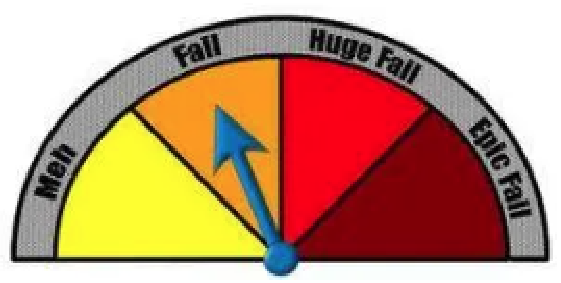

If you’ve read this blog before, you already know we can’t say enough about how important strategic plans are to a company’s success.
Understanding the value of and need for a strategic plan is a great place to start,
but just wanting something, isn’t enough. If it were, we’d all be famous actors in Hollywood. Developing a strategic plan takes discipline, foresight, and a lot of honesty. Regardless how well you prepare, you’re bound to encounter challenges along the way.
Here are 10 reasons why plans fail. Avoid these traps and you’ll be closer to your goal of implementing a strategic plan that actually achieves results and improves your business.
1. Having a plan simply for plans sake. Some organizations go through the motions of developing a plan simply because common sense says every good organization must have a plan. Don’t do this. Just like most everything in life, you get out of a plan what you put in. If you’re going to take the time to do it, do it right.
2. Not understanding the environment or focusing on results. Planning teams must pay attention to changes in the business environment, set meaningful priorities, and understand the need to pursue results.
3. Partial commitment. Business owners/CEOs/presidents must be fully committed and fully understand how a strategic plan can improve their enterprise. Without this knowledge, it’s tough to stay committed to the process.
4. Not having the right people involved. Those charged with executing the plan should be involved from the onset. Those involved in creating the plan will be committed to seeing it through execution.
5. Writing the plan and putting it on the shelf. This is as bad as not writing a plan at all. If a plan is to be an effective management tool, it must be used and reviewed continually. Unlike Twinkies or a fine vino, strategic plans don’t have a good shelf life.
6. Unwillingness or inability to change. Your company and your strategic plan must be nimble and able to adapt as market conditions change.
7. Having the wrong people in leadership positions. Management must be willing to make the tough decisions to ensure the right individuals are in the right leadership positions. The “right” individuals include those who will advocate for and champion the strategic plan and keep the company on track.
8. Ignoring marketplace reality, facts, and assumptions. Don’t bury your head in the sand when it comes to marketplace realities, and don’t discount potential problems because they have not had an immediate impact on your business yet. Plan in advance and you’ll be ready when the tide comes in.
9. No accountability or follow through. Be tough once the plan is developed and resources are committed and ensure there are consequences for not delivering on the strategy.
10. Unrealistic goals or lack of focus and resources. Strategic plans must be focused and include a manageable number of goals, objectives, and programs. Fewer and focused is better than numerous and nebulous. Also be prepared to assign adequate resources to accomplish those goals and objectives outlined in the plan.
By avoiding these pitfalls, you can create an effective planning process, build a realistic business direction for the future, and greatly improve the chances for successful implementation of your strategy.